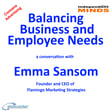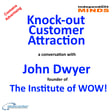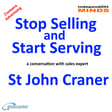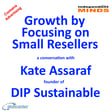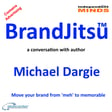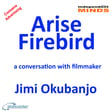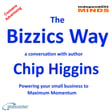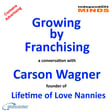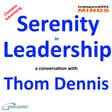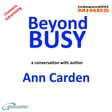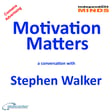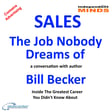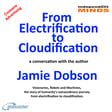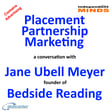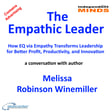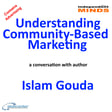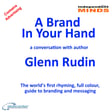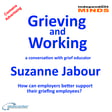
Networking Unleashed – a conversation with author Michael Forman.
Technology shrinks the world making it possible for guests from around the world to appear on The Independent Minds, But most business people do business with other businesses that are in the same area. As Michael Forman explains building good relationships with other local businesses can improve the performance of any business.
In this episode of The Independent Minds Michael Forman explains to host Michael Millward, how to turn an introduction to a stranger in to business by following a consistent, focused, process.
Michael Forman explains how to go from making an elevator speech to elevating yourself.
Anyone says Michael Forman regardless of whether they are an extrovert or introvert can become a competent and confident business networker.
Buy Networking Unleashed at these retailers
The Independent Minds is made on Zencastr.
Zencastr is the all-in-one podcasting platform, on which you can create your podcast in one place and then distribute it to the major platforms.
Zencastr really does make creating content so easy.
If you would like to try podcasting using Zencastr visit zencastr.com/pricing and use our offer code ABECEDER.
Find out more about both Michael Millward and Michael Forman at Abeceder.co.uk
Matchmaker.fm
Thank you to the team at Matchmaker.fmthe introduction to Michael Forman.
If you are a podcaster looking for interesting guests or if like Michael, you have something interesting to say Matchmaker.fm is where matches of great hosts and great guests are made. Use our offer code MILW10for a discount on membership.
Travel
Michael Forman is based in Georgia USA.
The Ultimate Travel Club, offers trade prices on travel to Georgia USA and everywhere else. You can become a member at a discounted price by using my offer code ABEC79 when you join-up.
Three the network
If you are listening to The Independent Minds on your smart phone, you may like to know that Three has the UK’s Fastest 5G Network with Unlimited Data, so listening on Three means you can wave goodbye to buffering.
Visit Three for information about business and personal telecom solutions from Three, and the special offers available when you quote my referral code WPFNUQHU.
Being a Guest
If you would like to be a guest on The Independent Minds, please contact using the link at Abeceder.co.uk.
We recommend that potential guests take one of the podcasting guest training programmes available from Work Place Learning Centre.
We appreciate every like, download, and subscriber.
Thank you for listening.
